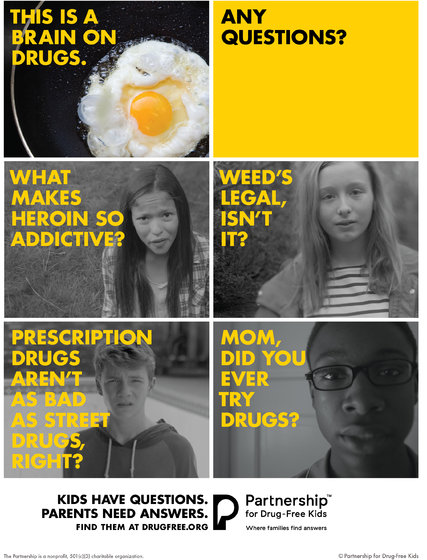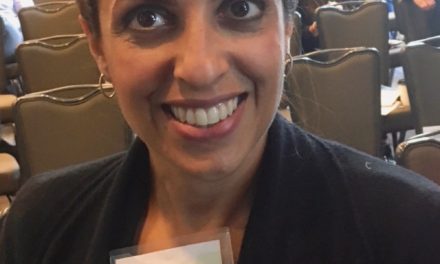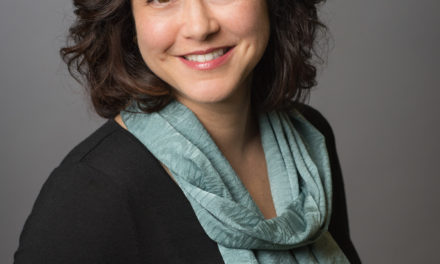August 13 2016 The Sunday New York Times ran a full-page ad for the Partnership™ for Drug-Free Kids, a non-profit funded ultimately by Big PhRMA. Note the organization’s name change —”Drug-Free Kids,” replaces “Drug-Free America.” Earlier in the week the Times ran an obsequious pseudo-news story about the Partnership’s new campaign, with self-serving quotes from honchos at two leading ad agencies —Campbell Ewald and BBDO. The Times depends on their clients for revenue.
The new ads reprise the fried-egg image from the original Reagan-era campaign, in which an actor held up an egg, saying, “This is your brain,” cracked it into a frying pan saying, “This is drugs,” and then, as it sizzled, “This is your brain on drugs. Any questions?” That ad was created and tweaked over the years by real tweakers —ad men who had been busted on cocaine charges doing “Community Service” instead of prison time. The fried-egg brain is considered one of the all-time greatest ads because it generated a lot of comment. But the comment was generally derisive. Most people saw the ads as simplistic, stupid, and insulting.
The new fried-egg campaign is more “nuanced,” say its creators. In the Times four-pager, beneath the egg in the pan, a white girl asks “Weed’s legal, isn’t it?” A white boy asks “Prescription drugs aren’t as bad as street drugs, right?” A bespectacled black lad asks, “Mom, did you ever try drugs?” An apparent Chicana asks, “What makes heroin so addictive?” Parents are told to find the answers at drugfree.org.
But clicking on drugsfree.org does not lead directly to the questions asked in the ad, let alone the primo parental responses. If your questions have to do with marijuana, you click your way to a “Marijuana Talk Kit” that assumes you already disapprove of its use. It states:
National debates on the legalization of marijuana have helped normalize the behavior for many teens. In fact, 78 percent of teens say that they have close friends who use marijuana. That’s why it’s important that your child inherently (sic) understands that you don’t approve of his use of marijuana, in the same way that you don’t want him to smoke cigarettes, drink alcohol or use other drugs.The new marijuana landscape doesn’t change the fact that all mind-altering substances — including marijuana — are harmful for the still-developing teen brain. The parts of the adolescent brain which develop first are those that control physical coordination, emotion and motivation. However, the part of the brain which controls reasoning and impulses —known as the prefrontal cortex. (sic) This part of the brain does not fully mature until the age of 25. It’s as if, while the other parts of the teen brain are shouting, the prefrontal cortex is not quite ready to play referee.




